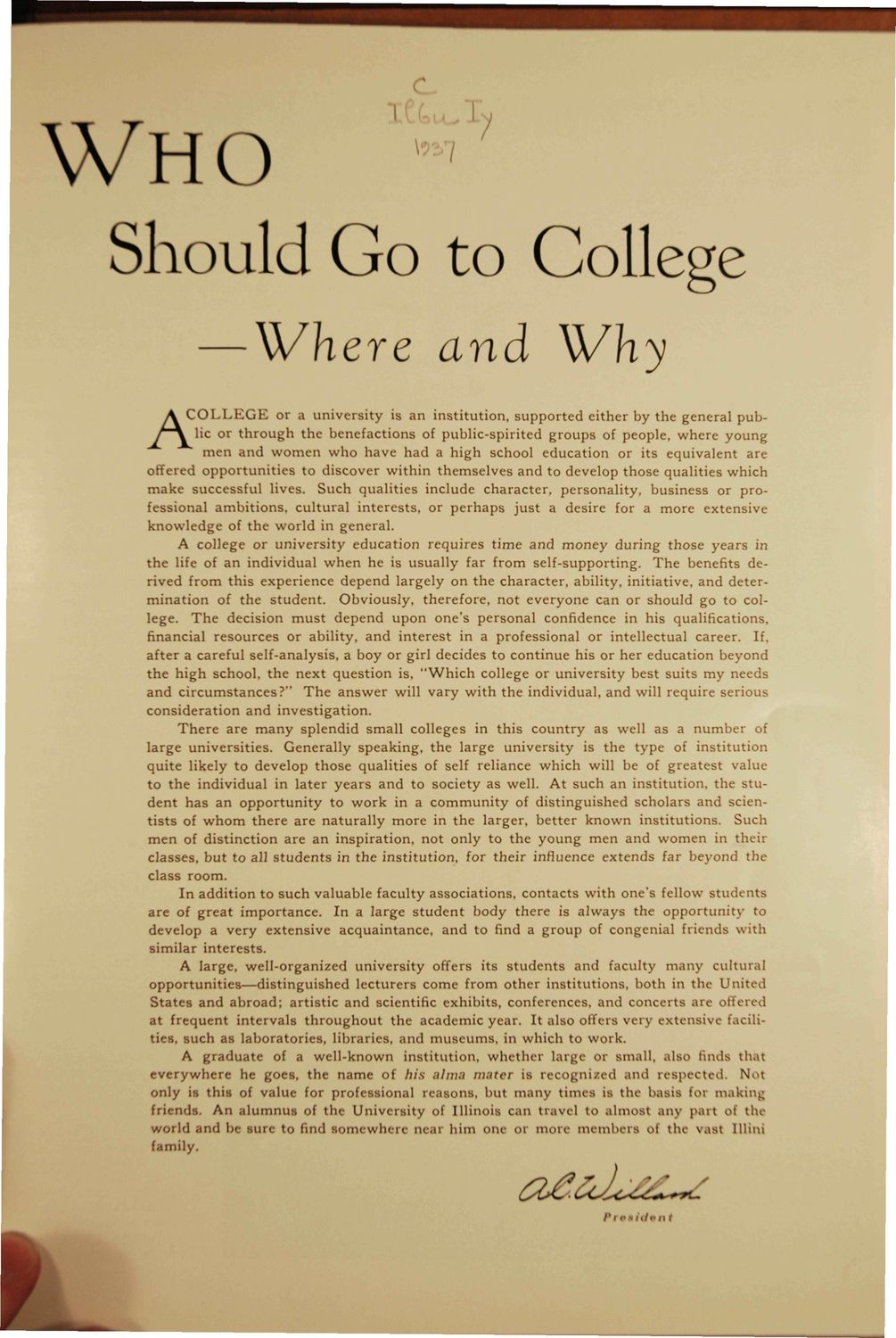| |
| |
Caption: Book - First Year at University (1937)
This is a reduced-resolution page image for fast online browsing.

EXTRACTED TEXT FROM PAGE:
C I WHO l / Should Go to Colle Where and Why A C O L L E G E or a university is an institution, supported cither by the general pub/ " " \ lie or t h r o u g h the benefactions of public-spirited groups of people, where young men and w o m e n who have had a high school education or its equivalent are offered opportunities to discover within themselves and to develop those qualities which make successful lives. Such qualities include character, personality, business or professional ambitions, cultural interests, or perhaps just a desire for a more extensive knowledge of the world in general. A college or university education requires time and money during those years in the life of an individual when he is usually far from self-supporting. T h e benefits derived from this experience depend largely on the character, ability, initiative, and determination of the student. Obviously, therefore, not everyone can or should go to college. T h e decision must depend upon one's personal confidence in his qualifications, financial resources or ability, and interest in a professional or intellectual career. If. after a careful self-analysis, a boy or girl decides to continue his or her education beyond the high school, the next question is, " W h i c h college or university best suits my needs and c i r c u m s t a n c e s ? " T h e a n s w e r will vary with the individual, and will require serious consideration and investigation. T h e r e are m a n y splendid small colleges in this country as well as a number of large universities. Generally speaking, the large university is the type of institution quite likely to develop those qualities of self reliance which will be of greatest value to the individual in later years and to society as well. At such an institution, the student h a s an o p p o r t u n i t y to w o r k in a c o m m u n i t y of distinguished scholars and scientists of w h o m there are naturally more in the larger, better known institutions. Such men of distinction are an inspiration, not only to the young men and women in their classes, but to all s t u d e n t s in t h e institution, for their influence extends far beyond the class room. In addition to such valuable faculty associations, contacts with one's fellow students are of great importance. I n a large s t u d e n t body there is always the opportunity to develop a very extensive acquaintance, and to find a group of congenial friends with similar interests. A large, well-organized university offers its s t u d e n t s and faculty many cultural opportunities—distinguished lecturers come from other institutions, both in the United States and abroad; artistic and scientific exhibits, conferences, and conceits are ottered at frequent intervals t h r o u g h o u t the academic year. It also offers very extensive facilities, such as laboratories, libraries, and museums, in which to work. A graduate of a well-known institution, whether large or small, also finds that e v e r y w h e r e he goes, the name of his alma nutter is recognized and respected. Not only is this of value for professional reasons, but many times is the basis for making friends. An a l u m n u s of the University of Illinois can travel to almost any part of the world and be sure to find somewhere near him one or more members of the vast Mini family. f I »» u / f II f
| |